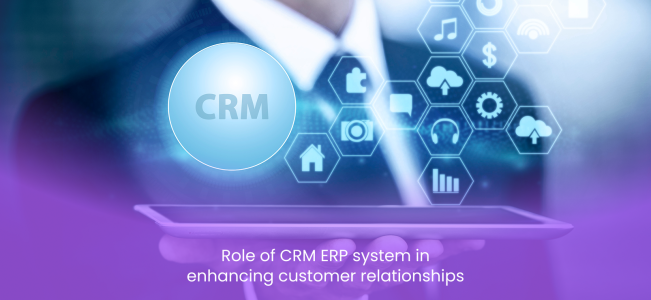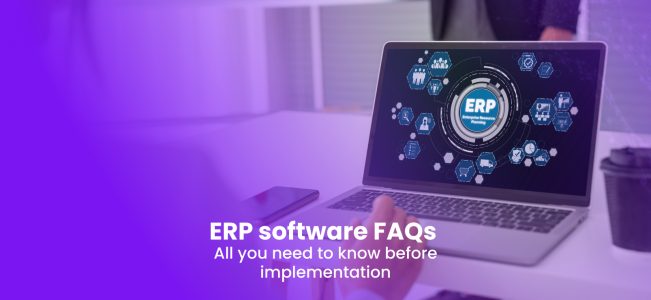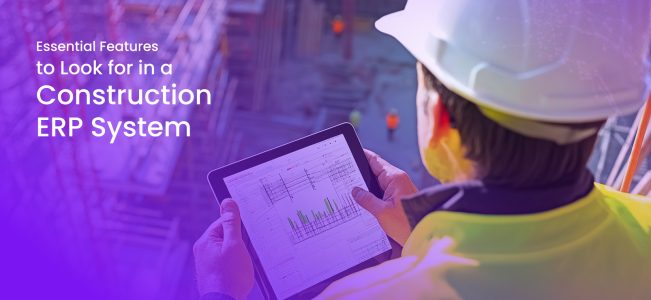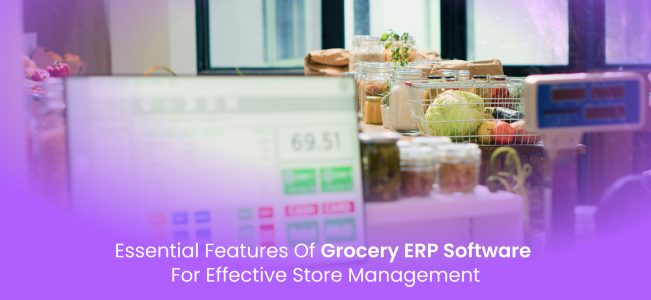Top 10 ERP Benefits That Transform Supply Chain Management
Supply chain performance has become a boardroom focus and is no longer an operational affair. In order to achieve cost-effectiveness, end-to-end visibility, and accurate response to demand variations, forward-thinking businesses are using supply chain management software integrated with robust ERP platforms. ERP systems integrate key activities like demand planning, production, logistics, and procurement, allowing business executives to make fact-based, quicker decisions that enhance resilience and ensure long-term competitive advantage.
The Strategic Function of ERP in Supply Chain Management
Modern ERP systems unify planning, procurement, manufacturing, inventory, and distribution, making them crucial for streamlining supply chains. They enable data-driven decision-making, real-time transparency, and cross-functional collaboration to reduce expenses and increase responsiveness.
ERP reduces silos, automates critical procedures, and synchronises supply chain activities with broader business objectives by integrating corporate data into a single system. This enables management to better anticipate changes in demand, improve sourcing, and promote sustainable efficiency.
Transforming Supply Chains With ERP Solutions
ERP integration transforms supply chain management in the following ways:
-
Cost Optimization Across IT And Training
IT infrastructure consolidation, which reduces the need for multiple distinct platforms and associated support costs, is one of the most significant advantages of ERP. A single platform improves ROI and overall operational effectiveness by reducing the requirement for employee training, simplifying procedures, and offering real-time analytics.
-
ERP-Driven Operational Efficiency
By facilitating real-time visibility across operations and automating essential processes, ERP benefits continue to enhance supply chain efficiency. This reduces costs and boosts responsiveness by enabling quicker data-based decisions in procurement, logistics, and manufacturing.
-
Workflow Automation
Cloud-ERP systems drive automated supply chain solutions by simplifying information flow among different departments, decreasing manual intervention, and stepping up decision-making. For instance, the system might automatically alert obtaining teams when vital raw material levels dip below established thresholds, facilitating timely response and continuous supply chain performance.
-
Boosted Customer Retention
By integrating supply chain processes and data, ERP for manufacturing facilities enhanced planning, optimized production schedules, and improved delivery estimates. This dependability improves an organization’s capacity to continuously deliver customer expectations, leading to satisfaction, long-term retention, and reliability.
-
Supply Smoothly Aligns with Demand
More exceptional supply and demand transparency enables companies to handle inventories better, less surplus inventory, less requirement for warehouse space, and reduced costs. Automation also decreases administrative burdens and eases expensive mistakes in planning and procurement.
-
Reinforced Data Security
Secure data is one of the most important advantages of ERP deployment. ERP solutions can help businesses in managing who can access or modify sensitive data due to centralized control. Data integrity and safe enterprise access are ensured by role-based permissions, which are in line with corporate governance and compliance standards.
-
Effective IT Operations
By eliminating the need to manage different applications, an integrated ERP solution simplifies supply chain and IT operations. All ERP modules operate on a single platform when real-time data is used, which lowers integration issues, lowers errors, and ensures that all departments in the company have access to consistent, accurate data.
-
Proactive Bottleneck Prevention
Delays in inventory or procurement can slow down the whole supply chain. ERP software for warehouse management makes it possible to identify bottlenecks early, alert the necessary teams, and distribute resources in a way that maximizes production flow and ensures customers receive their orders on time.
-
End-to-End Process Visibility
Complete visibility into every business operation is one of the biggest advantages of ERP software. Providing real-time access to functionally relevant data enhances traceability, accelerates tasks completion, increases productivity, and allows on-time delivery. Process flows are relatively straightforward for users to follow and understand because to its graphical interface.
-
Agility In An Undefined Supply Chain
The ability to create adaptable, responsive supply chain operations is one of the key advantages of ERP deployment. By combining scenario planning and predictive analytics into a single unit, businesses can identify problems in demand, logistics, or supplier capacity early on and take preventative measures to maintain performance and continuity.
Conclusion
Supply chain management and ERP integration is a strategic necessity, not an option, for staying competitive in the rapidly evolving global marketplaces of today. Using technologies like artificial intelligence (AI), robotics, and predictive analytics, a strong, future-ready ERP system fosters innovation, streamlines processes, and increases transparency. Businesses can optimize resources, adapt swiftly to change, and create robust, flexible supply chains that propel profitable growth by using a single platform.
Why Choose CERP Suite?
Simplify your company’s operations with CERP Suite, a top ERP solution that provides integrated operations, real-time information, and optimized processes. From finance to supply chain, it supports everything and is both scalable and user-friendly, enabling more informed choices and long-term growth.












